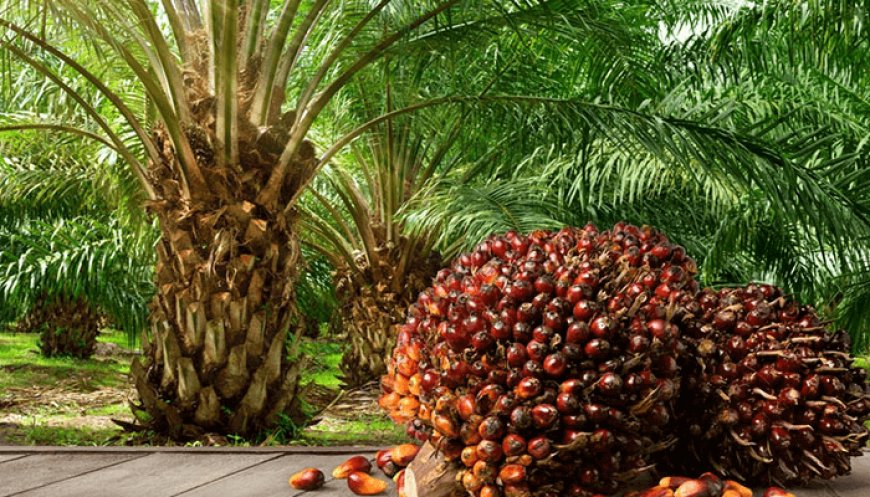Cracking Nigeria’s future, one palm nut at a time

There was a time when processing palm nuts in Nigeria meant backbreaking labour, stone against shell, man or woman against nature.
Across the sprawling farmlands of Southern Nigeria, smallholder farmers toiled from dawn till dusk, cracking thousands of nuts by hand, often with little to show for it.
Yields were low. Waste was high. And yet, the potential – rich, golden palm oil – slipped through the fingers of a nation once crowned the world’s largest producer.
But two men, Ikenna Nzewi and Uzoma Ayogu, looked at this broken chain and saw not a dead end, but a beginning. They saw not just hardship, but opportunity.
In 2017, they founded Releaf with a bold vision: to industrialise Africa’s agricultural value chains – starting with the humble palm nut.
From Stanford Dreams to Nigerian Soil
Nzewi, a Nigerian-American graduate of Yale University, and Ayogu, a mechanical engineer from Duke University, North Carolina, could easily have pursued careers in Silicon Valley. Instead, they returned to Nigeria, choosing the complexity of rural agriculture over the comfort of high-paying tech jobs.
“We believed that real economic growth starts from the real economy – from farmers, from factories, from food,” Nzewi said.
They began by listening – to farmers, processors, and buyers – uncovering the pain points of Nigeria’s $3 billion vegetable oil market. What they found was staggering: smallholder farmers, who make up 80% of the sector, were trapped by inefficiencies. Food factories, operating at just a third of their capacity, struggled to find quality raw materials.
The problem wasn’t just production; it was broken processing. And the solution would have to be radical.
Building the Kraken
Enter the Kraken: Releaf’s flagship innovation, a patent-pending machine designed specifically for Nigeria’s palm nuts. Unlike traditional methods, the Kraken could crack 500 tonnes of nuts per week, delivering 95% pure kernels — a quantum leap in efficiency and quality.
This was not imported machinery. This was technology born from Nigeria’s soil, built for its unique challenges.
“The Kraken is more than a machine,” Ayogu explained. “It’s a bridge — connecting the farmer’s field to the factory floor, unlocking value at every step.”
But Releaf didn’t stop at hardware. They built software too — connecting with over 2,000 smallholder farmers through USSD platforms, offering working capital financing, aggregating supply, and collecting vital data to optimise the entire chain.
In an industry still reliant on rocks and outdated techniques, Releaf’s combination of cutting-edge technology and farmer-centric solutions was nothing short of revolutionary.
Riding the Funding Waves
Scaling innovation requires capital — and Releaf’s vision attracted it.
In 2021, Releaf secured a $2.7 million seed round, led by Samurai Incubate Africa, Future Africa, and Consonance Investment Managers. It also clinched $1.5 million in grants from USAID and The Challenge Fund for Youth Employment.
Rena Yoneyama, managing partner at Samurai Incubate Africa, summed it up: “Releaf’s proprietary technology and decentralised model are a perfect match for Africa’s economic development needs for the next few decades.”
More than just capital, this vote of confidence allowed Releaf to deepen its roots — training farmers, creating digital and technical jobs for youth and women, and pushing the boundaries of what African agribusiness could achieve.
Then came 2023, and another milestone: a $3.3 million pre-Series A raise. Releaf unveiled Kraken II, a more portable version of its processing machine, and SITE, a geospatial app to help manufacturers decide where to locate factories based on farmer density and crop yield.
Releaf was not just scaling; it was multiplying its impact.
Cracking a New Dawn for Nigeria’s Oil Palm Sector
Nigeria’s palm oil story is one of glory lost. Once the world leader in palm oil production, Nigeria now imports hundreds of thousands of tonnes annually, struggling to meet domestic demand. The blame lay partly in the fragmented, underpowered supply chain.
But Releaf is changing that narrative — one kernel at a time.
By making processing accessible near the farm gate, Releaf dramatically reduces logistics costs, improves farmer income, and feeds better-quality raw materials into food factories. Factories, once starved of good inputs, are now buzzing with activity. Farmers, once trapped in poverty cycles, are seeing better margins and steady demand.
And the ripple effects are profound: stronger rural economies, more resilient food systems, and a reclaiming of Nigeria’s agricultural destiny.
Made in Nigeria, Built for the World
Releaf’s ambitions are not confined to Nigeria’s borders.
Palm oil is a global commodity — a key ingredient in everything from chocolate to cosmetics. As global supermarkets stock products containing glycerine and other palm-based extracts, the demand for quality African palm oil is only set to grow.
Releaf is building an African agro-industrial revolution from the ground up — one that doesn’t just feed local communities, but powers industries across continents.
“Our dream,” Nzewi says, “is to show that world-class industrialisation can happen here, on African soil, led by Africans, for Africans and beyond.”
The Future is Cracked Open
Where others saw broken shells, Nzewi and Ayogu saw seeds of opportunity.
Today, Releaf stands as proof that Africa’s real economy — farming, processing, manufacturing — holds the key to its prosperity. Through technology, grit, and an unwavering belief in Nigeria’s potential, Releaf is not just cracking palm nuts; it’s cracking open a future filled with promise.
And just like the golden oil from a well-processed kernel, Nigeria’s agricultural renaissance is beginning to flow — rich, potent, and unstoppable.

 admin
admin 


